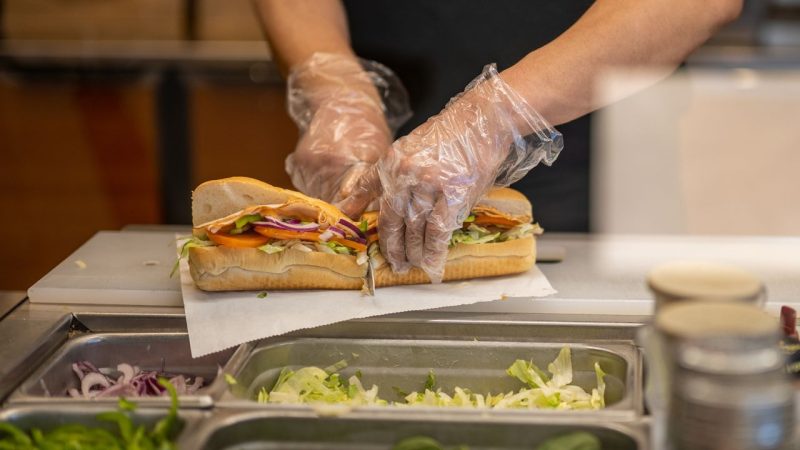Subway has sold itself to private equity firm Roark Capital, ending a six-month long search for a buyer. It brings to an end the sandwich chain’s near six-decade run as a family-owned business.
In a statement, Subway said that the transaction is a “major milestone in Subway’s multi-year transformation journey, combining Subway’s global presence and brand strength with Roark’s deep expertise in restaurant and franchise business models.”
Roark holds investments in a number of large restaurant chains, including Arby’s, Auntie Anne’s, Buffalo Wild Wings, Carvel and Sonic, among others.
Terms of the deal weren’t disclosed. However, the Wall Street Journal reported the purchase price was “around $9.6 billion,” which would be slightly below the chain’s $10 billion asking price. The deal’s closure is “subject to regulatory approvals and customary closing conditions,” Subway said.
Subway put itself up for sale in February.
Roark’s deal is one of the biggest acquisitions in fast food history, coming in just under Inspire Brands’ $11.3 billion purchase of Dunkin’ in October 2020. Roark owns Inspire, which also operates Subway rival Jimmy John’s.
Subway has turned itself around in recent years with a revamped menu featuring freshly sliced meat, store renovations and an bigger emphasis on international growth. In July, the company announced its 10th consecutive quarter of positive sales at stores open at least a year, including a 9.5% increase at its North America locations (it didn’t reveal specific numbers).
Despite the sales turnaround, the number of US Subway stores declined to 20,576 last year according to Technomic. That’s a sharp decrease from its peak in 2015 when it had 27,219 locations.
Another issue for Roark: Yearly sales at Subway US restaurants are still much lower compared to its sandwich-making rivals. Data from QSR Magazine reveals that its three main competitors (Jersey Mike’s, Firehouse Subs and Jimmy John’s) pull in about $1 million per unit, with an average Subway location raking in less than $500,000.
However, US revenue has rebounded in recent years to $9.8 billion in 2022, which is up 4% compared to the year prior, but well off from its 2015 peak when it raked in $11.5 billion.
Roark has inherited a solid and sizeable business in Subway but needs to make changes to improve both sales and profitability,” wrote Neil Saunders, managing director of GlobalData, in a note. “This includes enhancing efficiency by trying to consolidate the number of franchisees, looking at ways to increase its share of meal occasions in a very competitive market, and engaging consumers more with menu innovations.”
Saunders added that given Roark’s “extensive experience and investments in the foodservice sector and its record of nurturing restaurant brands and helping them to grow, it clearly sees an opportunity to apply the same playbook to Subway.”
Earlier this month, Subway announced that Trevor Haynes, president for Subway’s North America operations, was leaving after being with the company for 18 years. He’s being replaced by Douglas Fry next month, who’s the current leader of Subway’s Canada operations.
Source: CNN






